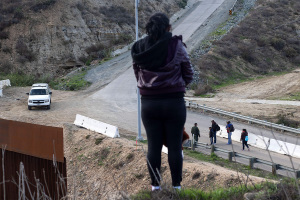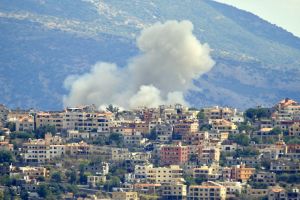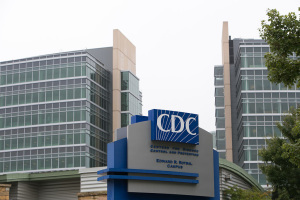United Methodist Council of Bishops Meets with President of Congo
Making Congo a priority area in prayers and concern
WASHINGTON — Thirteen bishops from the United Methodists’ Council of Bishops met with the President of the Democratic Republic of Congo to pray and plan for the health of the impoverished and war-torn nation, as part of thier six day semiannual meeting in the Washington Area, Nov. 6.
"Congo should become a priority area. It should be a priority in your prayers (and) in your social concern," the 32-year old president Joseph Kabila said.
Between prayers, Kabila candidly explained the current affairs of his nation, where more than 1 million United Methodists lives.
"The will of people is the will of God. It is the will of the people to live in peace with their neighbors. Hearing this, who was I to go against the will of God?" said Kabila, who became president in 2001 after the assassination of his father, President Laurent Kabila.
Laurent Kabila ruled in the nation since the 1997 ousting of the dictator Mobutu Sese Seko. Since then, the Congolese people were immersed in a six-year war in which millions lost their lives. Currently, more than 10,000 United Nations peacekeepers are working to maintain the relative peace.
"The Methodist Church is found on each and every corner. It is very, very active," Kabila told the bishops.
Kabila asked that the UMC assist the Congolese in three main areas: economic development, political and social peace and improved health care – especially a monitoring of the deadly HIV/AIDS epidemic.
"We hope to make sure that a pregnant woman won’t have to walk 100 kilometers to a medical center. Bring the medical center to her,” said Kabila.
Kabila said he seeks ensure "that no single Congolese will go to bed without eating. No father of children will be unable to send his children to school… AIDS is like a war, but we cannot sign a cease-fire. We cannot afford to lose this particular battle."
Kabila told bishops he is committed to a peace process that will lead to elections, but cautioned that he is walking a difficult road.
"It’s one thing to talk of peace. It’s another to make peace last…With 50 million people with differences, it is important that they sit around the table and talk with each other. This is a process because six years of war cannot be healed in four months."
"When I think of peace in the Congo, I think of the verse in the Bible, ‘Blessed are the peacemakers, for they shall inherit the kingdom of God.’ This was the driving force for the peace process in the Congo," Kabila said.
Bishop Felton Edwin May, bishop of the Washington Area and host of the council’s meeting, responded to the president’s remarks, saying Kabila offered a "careful, clear message, stated with dignity and wisdom. … The people of Congo have put their trust in God, their faith, in you."
The meeting concluded with a prayer by Bishop Sharon Brown Christopher of the Illinois Area, immediate past president of the council.
"We know the peacemakers are blessed," she said, and she thanked God for Kabila’s "vision of stability, reconciliation, development and health."




























